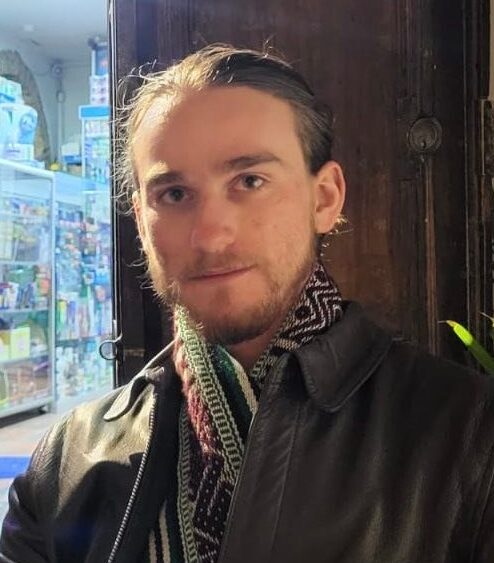
By Rowan Glass
Taking a gap year after graduating from college and before entering the workforce or enrolling in a graduate program can be a great way to gain new experiences, build skills, travel, and reflect on your priorities. In this article, I compile a list of tips to help you make the most of a gap year.
How to know when to take a gap year
There are a few factors to consider when deciding whether to take a gap year. Each person’s financial situation, family circumstances, personal obligations, and priorities are different, meaning deciding to take a gap year can be easy for some and difficult for others. Here are a few questions to ask yourself before making that decision:
- Do you have the financial resources to take a year off work and school? It’s important to determine whether common gap year options, such as long-term travel, are within your budget before booking that flight with no return ticket (something I’ve done several times myself). Fortunately, there are ways to fund a gap year that don’t depend on having lots of money in the bank at the outset; I’ll discuss some of these in the sections below.
- Do you have familial or social obligations that prevent you from leaving for an extended period? Those with caretaking duties may not have the flexibility to take time away. Some fresh graduates may also already have jobs, in which case one has to calculate whether the benefits of keeping the job outweigh those of taking a gap year. In each case, this is a personal decision that greatly depends on individual circumstances.
- Are there things you want to do before committing to a multi-year commitment, such as a job or graduate program? If you can’t imagine committing to a years-long PhD or career track without first making that trip to Machu Picchu you’ve always dreamed of, this is your time. Taking a gap year is an amazing way to tick those long-term goals off your bucket list. You may not get another chance at such unrestricted freedom.
- Are there things you can do in your gap year that will better prepare you for your next steps, such as going to grad school or starting a career? Perhaps you need to develop language skills that you’ll need for a PhD program or a job. In that case, spending part of your gap year honing that skill could pay dividends in your future pursuits. A gap year can be a great time to further your education and strengthen your professional competencies in ways that will facilitate your next steps.
- Will taking a gap year aid your personal development? In addition to financial, academic, and professional logistics, you should also consider how this opportunity will help you grow. Many people who take gap years report feeling more independent, self-confident, and well-rounded following their experiences—and I can confirm these results from my own experience.
Once you’ve carefully considered and weighed these questions, you’ll be in a position to decide whether taking a gap year is the right choice for you.
Using your gap year to set yourself up for success
Once you’ve committed to taking a gap year, you’ll want to ask yourself how you can make the most of it to set yourself up for success. Depending on your future plans, this can take a few forms. Here are a few possibilities:
- Many people choose to pursue relevant work experience in the context of their gap year. This may be temporary work meant to pay the bills while preparing for bigger career opportunities or to fund the rest of one’s gap year. In other cases, one can gain professionally relevant experience by volunteering, freelancing, or working in fields relevant to your career or academic pursuits. If you can work online, that’s another option; many gap year travelers take advantage of remote work opportunities to become “digital nomads” during their travels.
- Did you know that fellowships for gap year students exist? Programs abound that help recent graduates teach English, complete research, study a language, or undertake professional development in numerous countries around the world. These opportunities are available for recent graduates and young professionals across a wide variety of professional and academic fields. Finding the right program for you can be a great way to fund a gap year dedicated to study and professional growth.
- In an increasingly globalized and interconnected world, international travel experience and intercultural communication abilities are vital in many different professional and academic fields. If you don’t have experience in these areas, traveling during your gap year can be a great way to build those competencies.
- As mentioned above, a gap year can be a great—and subsequently rare—opportunity to pursue personal projects that contribute to one’s “success” on a personal level. What does “success” mean to you? How can you use your gap year to become a more well-rounded person? The benefits of doing so can extend beyond your professional pursuits and into every aspect of your life.
For a personal example, I took my first gap year after graduating from high school. I spent nine months backpacking across Latin America, from Buenos Aires to Tijuana, improving my Spanish, interacting with people from diverse backgrounds, and learning about the different regions I traveled through. These intercultural experiences confirmed my interest in studying anthropology and returning to Latin America in my future career. I returned to the US with a worldlier perspective, improved language skills and intercultural experience, increased self-confidence and independence, and new directions in which I wanted to take my pursuits.
After graduating with my BA, I decided to take another gap year before enrolling in a graduate program. This time, I wanted to focus on developing and diversifying my professional skills to become a stronger PhD candidate and a more employable professional. I started by attending a visual ethnography workshop in Greece, where I produced my first film and gained experience in video production and filmmaking. Over the following months, I built a portfolio in photography, videography, and freelance journalism in several different countries.
In both cases, I made the most of the opportunities available during my gap years to cultivate my interests and experiences towards my future pursuits: first, studying anthropology and focusing on Latin America; second, diversifying my skillset by branching into filmmaking, multimedia journalism, and freelancing. However, everyone’s journey is different, and people with backgrounds and priorities different from mine could make equally productive use of their gap years. It’s all up to you!
How to plan a gap year
Now we come to my favorite part: once you’ve decided to take a gap year, how do you plan it?
First, planning depends on what you’ll be doing during your gap year. If you plan to travel, where, when, and for how long? Depending on your budget and lifestyle, will you stay in luxury suites in beachside resorts or cheap dorms in backpacker hostels? Will you cook your own meals or go out to eat? The answers to these and many more questions should be clear in your mind before you set out on a gap year journey. Thankfully, numerous guides, resources, forums, and apps exist to help you sort through the mountain of information that goes into trip planning.
Some of the basic factors to consider before embarking on gap year travel include accounting for healthcare, travel insurance, and passport and visa requirements, as well as the tricky business of knowing what to bring, how to pack, and how to navigate the cultural and linguistic barriers that come with traveling abroad.
My two cents based on years of backpacking experience: invest in a good, versatile, and solidly built pair of boots. Your feet will thank you! Of course, if you’re putting the “backpack” in “backpacking,” you’ll also want a well-built backpack. Just make sure to do your research before spending big on travel equipment!
If you plan to work or conduct a fellowship abroad, you’ll need to familiarize yourself with the rules of working and studying in another country. Every country has different rules, so be sure to know whether you’re expected to enter on a work visa or if you need an institutional sponsor to endorse your plans. If you’re applying to a competitive gap year fellowship, make sure to start your application well ahead of time and with the support of your mentors and peers. Similarly, it’s important to be cognizant of the cultural values and norms of your host country; be sure to learn the rules and act in a culturally appropriate manner to show your respect while abroad.
If you plan on starting a graduate program after your gap year, remember that you’ll need to work on your application up to a year before the start of the program. The grad school application cycle can take a long time, so begin preparing your materials and soliciting letters of recommendation early. Then, as you receive decisions, you’ll be able to adapt your plans throughout the remainder of your gap year as the outcomes demand.
It’s also important to put your gap year ambitions in dialogue with your plans upon returning home. If you plan to travel for part of the year and then return home, will you have a job lined up when you go back? Or will you come back just in time to move for a graduate program? These timeline questions are important to consider ahead of time. A year may seem like a long time, but it’ll be gone before you know it! For that reason, it’s a good idea to document your gap year experience while you’re gone. Doing so can allow you to share your experience publicly, which may make you an attractive candidate for potential employers or graduate programs—and at the very least, you’ll be glad for the keepsakes!
How will you make the most of your gap year? Will you backpack across Europe, volunteer, work as you travel to cover expenses, or dedicate a few months to learning a new language? Will you prioritize developing professional skills, building connections, or gaining life-changing experiences? These are all questions for you to explore during what could be one of the most productive and fruitful years of your life.

© 2024 ProFellow, LLC. All rights reserved.